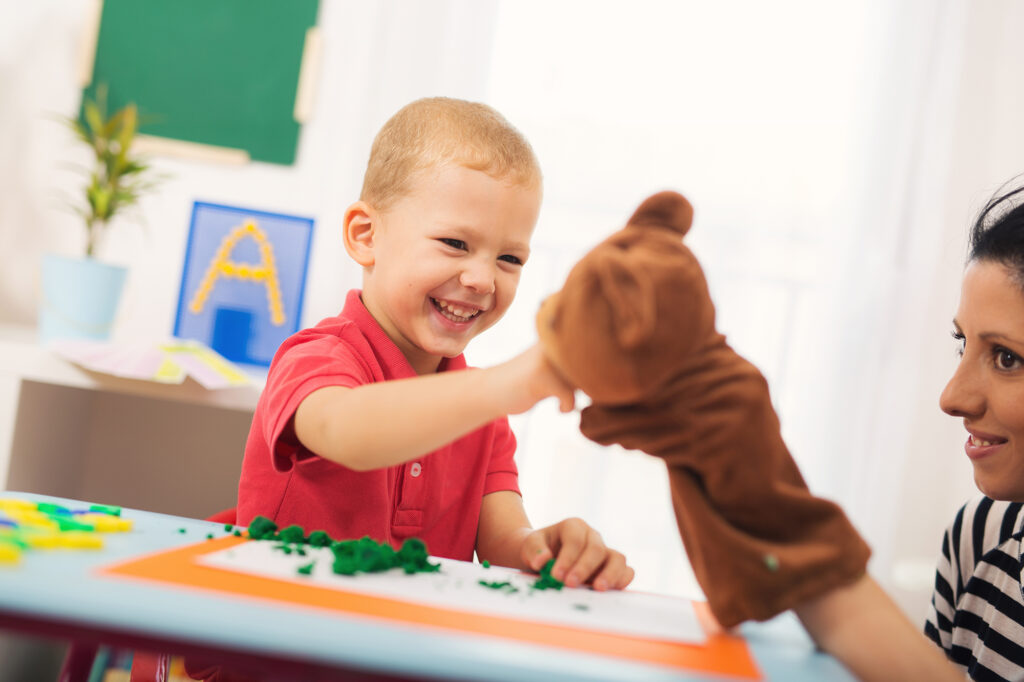
Play Therapy
Although sometimes used with adults, play therapy is a psychotherapeutic approach primarily used to help children ages 3 to 12 explore their lives and freely express repressed thoughts and emotions through play. Therapeutic play normally takes place in a safe, comfortable playroom, where very few rules or limits are imposed on the child, encouraging free expression and allowing the therapist to observe the child’s choices, decisions, and play style. The goal is to help children learn to express themselves in healthier ways, become more respectful and empathetic, and discover new and more positive ways to solve problems.
The parent or caregiver plays an important role in play therapy for children. After conducting an initial intake interview with the parent, when the therapist collects information about the child, and, often, a separate interview with the child, the therapist can make an assessment prior to beginning treatment. An assessment allows the therapist to decide the best treatment approach for the child. In the playroom, the child is encouraged to play with very specific types of toys that encourage self-expression and facilitate the learning of positive behaviors. Arts and crafts, music, dancing, storytelling, and other tools may also be incorporated into play therapy.

